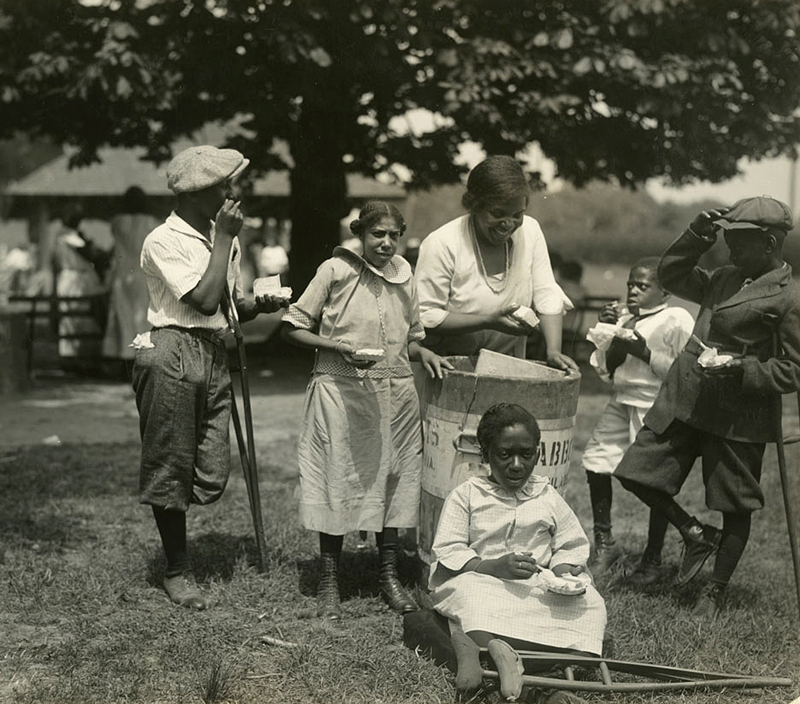
Burholme Park Outing "Ice Cream"
Library Company of Philadelphia, 1930
My dear friends,
Today we gather to reflect on Acts 4:32-35 and 1 John 1:5-7. These texts invite us to contemplate the unity and harmony that characterized the early Christian Church, and to draw connections between the principles of Christian koinonia and the Buddhist sangha.
Acts 4:32-35 depicts a community where the believers were of one heart and soul, sharing their possessions and ensuring that no one was in need. This was a testament to their love and commitment to one another, as well as their devotion to the teachings of Jesus Christ. The early Christian Church recognized the importance of creating a supportive spiritual environment in which individuals could grow and thrive. They understood that human beings are inherently social creatures and that our spiritual well-being is deeply connected to the quality of our relationships with others. In this community, the principles of love, compassion, and generosity were not only spiritual ideals but also practical guidelines for building a harmonious and supportive community.
In 1 John 1:5-7, we read:
that God is light and in him there is no darkness at all.
If we say that we have fellowship with him while we are walking in darkness,
we lie and do not do what is true;
but if we walk in the light as he himself is in the light,
we have fellowship with one another,
and the blood of Jesus his Son cleanses us from all sin.
The Greek word koinonia, which in this passage is translated as "fellowship," also carries the underlying meaning of "community" or even "communion," i.e., the Eucharist. This understanding deepens the significance of the passage, as it emphasizes that our connection with God and one another is rooted not only in shared belief but also in shared spiritual practice, such as participating in the Eucharist together. In this context, the statement about "the blood of Christ" in 1 John 1:7 takes on added meaning, as it points to the transformative power of the Eucharist in fostering genuine connection and unity within the Christian community.
These principles of unity, harmony, and shared spiritual practice resonate deeply with the Buddhist concept of the sangha, or spiritual community. The sangha is one of the "Three Jewels" in Buddhism, alongside the Buddha and the Dharma. It represents a group of practitioners who support and inspire each other on the path to enlightenment. Just as the early Christian Church was united in their love for Christ and each other, the Buddhist sangha is bound by their commitment to the teachings of the Buddha and the cultivation of wisdom and compassion.
As we reflect on the beauty of koinonia and sangha, we are reminded of the universal human longing for connection, belonging, and spiritual growth. Regardless of our religious or spiritual traditions, we can all draw inspiration from these models of communal living and strive to create environments where love, wisdom, and compassion can flourish.
Let us all be inspired by the values of the early Christian Church and the sangha, embracing the unity, harmony, and shared spiritual practice that characterized these communities. As we walk in the light and cultivate love, compassion, and generosity in our own lives, may we also experience the beauty of koinonia and the transformative power of spiritual community.